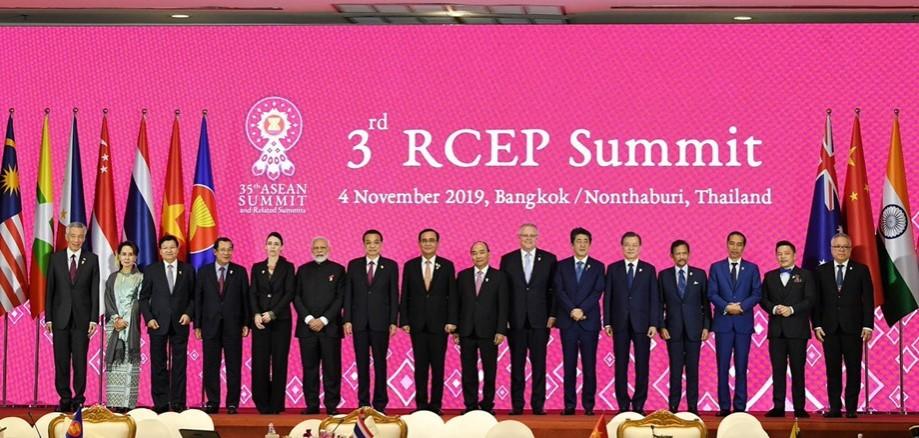
China on Wednesday, November 6, said India could benefit out of the Regional Comprehensive Economic Partnership (RCEP) deal as it would provide the country with many export opportunities.
Speaking at a news briefing in Beijing, Vice commerce minister Wang Shouwen said he understood India's concerns but the deal could benefit Indian exporters and help create more local jobs. "We understand that some industries in India will have some concerns, but RCEP will also bring huge export opportunities to the Indian industry," he said.
Wang added that the deal includes a protection mechanism that can be used to put the tariffs back on if India does find the deal damaging to its domestic industries. He said the deal would also greatly benefit Chinese firms, workers and consumers, as it would remove tariffs and non-tariff barriers, and bring down costs.
What is the RCEP trade deal?
The 16-member RCEP initially conceived in 2012, is be the world's largest trade bloc covering a population of 3.4 billion and supporting an economy of $24.3 trillion GDP ($49.5 trillion GDP on purchasing power parity) or 40 percent of global GDP (nominal). After US President Donald Trump took the US out of the Trans-Pacific Partnership (TPP) in January 2017, some believe the RCEP has a more realistic chance of becoming a big success.
China joined 14 countries this week in agreeing terms for RCEP, which could become the world's biggest free trade deal if officially signed next year as planned.
India's concern
India pulled out of the deal last minute amid worries that the deal would unleash cheaper imports from countries like China that render its own industries uncompetitive and hurt its farmers, businesses, workers and consumers.

Prime Minister Narendra Modi had said on Monday that he could not compromise the interests of farmers and workers at home by joining a China-led regional trade pact after it failed to address Delhi's concerns over market access.
Modi faced rising opposition to the deal from within his conservative Hindu base of small traders, as well as the main opposition party. "When I measure the RCEP Agreement with respect to the interests of all Indians, I do not get a positive answer," the PM said in a speech at the RCEP summit.
Economic slowdown
India's economic growth has fallen to a six-year low and exports have taken a hit due to the trade war between the United States and China, alongside protectionist measures taken by other countries.
PM Modi said there were no assurances for India on market access and non-trade barriers in the RCEP pact.
India's most thorny market access issue has been with its second-biggest trading partner China, with whom India had a $53 billion trade deficit in 2018/19.
India had been pushing to build safeguards into the pact to prevent a sudden surge in imports, but inadequate protection was among the key issues that persuaded New Delhi not to sign the pact, government sources said.
The 15 other countries said in a statement on Monday they had agreed to terms for what could be the world's biggest trade pact.
(With agency inputs.)

















